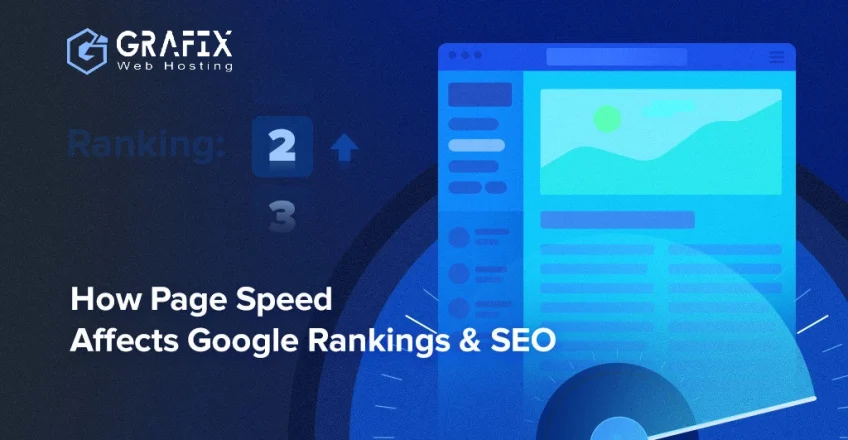
Why is Site Speed important? You can have a site that dazzles with its design and is written with the cleanest code, but there is still one thing that will make users give up on it and leave your website quickly. In today's fast-moving world, nobody likes to wait. Users hate slow-loading sites and are frustrated, they quickly drive away looking for alternatives. Slow-loading websites rank much lower in the search engine and at the same time generate much lower profits and higher costsIf you are still looking for the missing X factor which will help you not to lose conversions, think about improving your site speed.
Table of contents
1. Site Speed - what is it exactly?
2. Site speed affects UX
3. Load fast or you lose attention
4. Low site speed costs you more than you think
5. Website speed and Google rank
6. Site loading speed - be fast or you lose
Site Speed - what is it exactly?
Site speed is exactly what you think it is - the speed at which the website completely loads. But to be more precise (and a little bit nerdy too), site speed is measured from the user's browser requesting the page from the server to the content being fully loaded and rendered by the browser. Simply, it is about how long the content of your page takes to load, including: texts, graphics, video formats.
Site speed affects UX
Think about the user of your website. Your site speed affects their experience, and if the page loads too slowly, what will they learn about your business? Probably nothing and their only and last reaction with your site would be a quick click on the close tab button. Users will automatically associate your brand with a negative experience. According to Google, users define site speed at the very top of the UX hierarchy of their needs. Snappy website that is easy to click through equals a positive experience and it shouts: we are professionals.

Load fast or you lose attention
We live in times, where time is the most valuable resource. Really, people just expect instant effects. This also applies to website loading - both on mobile and desktop devices. You should really consider optimizing your website in terms of site loading speed or you might get yourself in trouble. Just look at these statistics from thrivemyway.com - they clearly show, that the bounce rate is increased by 32% if the loading time is between 1 to 3 seconds. Moreover, if the loading speed is up to 5 seconds, the bounce rate is skyrocketing to 90%. No one wants to have a website that drives the organic traffic away. Thus, you should take care of the optimization process - it will pay off.

Low site speed costs you more than you think
You may think that a small part of only 1 second is nothing in terms of site loading speed. Big mistake, really. Back in 2006, Amazon did some A/B testing in this field. Are you curious about what they learned? You should be. Even though it's been 16 years now from these tests, the factor works the same way. Here's the story short - a delay of 100 milliseconds in site loading speed translated to 1% of revenue loss. Well, one percent may seem to be just nothing worth attention, right? Not quite. In 2006 it would mean around $107 million less of revenue for Amazon. Just imagine how much they would lose in 2021 - their annual revenue reached $469.822 billions. One more thing - if users are not willing to wait 100 milliseconds for Amazon, what's the chance they would wait for your website? Exactly, now you see the big picture.
Website speed and Google rank
You already know how important is the factor of site loading speed. But there's more to that. What do we mean by that? The long-term effect. Apart from a massive amount of users who are likely to abandon your website due to long waiting time, there's the SEO part. Google rank is crucial - the higher your rank is, the higher the chance to get conversions. One of the most important factors for Google is site loading speed, that's true. But also are the backlinks - and domains with high authority rank will not link to a site with poor loading speed. Furthermore, users that abandon your website will also not recommend your website to their friends. In the long term - this can make your website sink in the depths of Google results. Let's be honest here - when was the last time you visited page 2 of Google results?
Site loading speed - be fast or you lose
There are many factors that Google considers in ranking websites. Relevance and authority matter, but here's an interesting fact - if your site loads slower than 2 seconds, Google reduces the amount of crawlers sent to the site. So, you may produce high-quality content that is super-relevant for your audience, but if your server response takes longer than said 2 seconds, your content may not be picked by Google bots. And that - in the long term - will hurt your wallet pretty hard. And you don't want that to happen.
